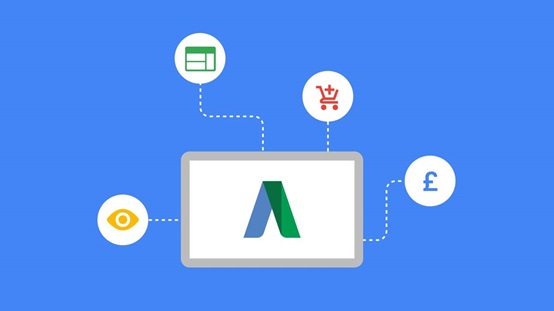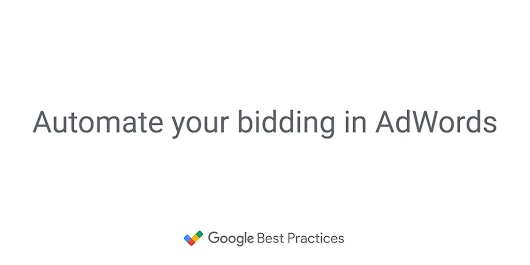
Automated bidding can take a whole heap of time and effort out of setting up your PPC campaign. You don’t just have to accept Google’s default bidding strategy – you can refine and tailor the smart bidding process by choosing one of seven automated strategies. But what do those strategies do?
Smart bidding brings all of Google’s machine learning heft to bear on your AdWords campaign. It enablesyou to target spend to the right clicks more effectively by applying a rich cocktail of data based on everything from viewer location to YouTube views to search history.
Head to your campaign settings page, click the ‘bidding’ dropdown and you’ll be presented with seven options for tailoring your AdWords bid strategy. Here’s what those options mean…
Target CPA
A good Smart Bidding strategy for maximum efficiency – within reason – especially when you’re on a budget. This bid tactic will see AdWords optimise bidsto deliver conversions at or below your target CPA.
The key to this strategy’s success is not setting AdWords an insanely challenging target that kills the campaign right out of the gate. AdWords will recommend a target CPA and,whilst you may be tempted to ignore it and set something dramatically lower, we’d suggest you start with that (or something very close to it) and see how the strategy performs. Over time, you can nudge things down a little and monitor the effect.
One other note of caution: AdWords uses data from past campaigns to inform future ones. If it has lots of data from lots of successful campaigns to work from, the strategy should work well. If it doesn’t, you may find the changes AdWords makes aren’t especially intelligent.

Target ROAS (Return on Ad Spend)
The problem with conversions is that some are worth more than others. When your prices fall in a narrow band that may not matter too much, but where your prices vary widely you’ll want a measure that considers not just the cost/volume of acquisitions (as Target CPA does) but the value of those acquisitions.
With Target ROAS, AdWords bids more for clicks that indicate larger purchases.
Maximize clicks
Hmm. We’re not sure about this one because, as the name suggests, conversion is secondary to the click, which increases the risk of buying low value impressions that don’t convert. Avoid.
Maximize conversions
Preferable to Maximize clicks, although as we’ve already explored, if there’s a high variance in your pricing there’s a danger AdWords Smart Bidding will target the cheaper, low hanging fruit and deliver conversions that just aren’t worth the click cost. We’d go with Target CPA or Target ROAS any day of the week.
Target search page location
We’ve spoken to numerous clients over the years whose sole AdWords goal is to beat their nearest rival. That’s never a particularly healthy approach to your online marketing but if the be all and end all of your AdWords Smart Bidding campaign is to stick it to your competitors, then this is the strategy for you, as it enables you to target spend at the pages on which you’ll appear in first position.
Mind you, it’s an expensive way of achieving results which are likely to be better if you choose Target CPA or Target ROAS.
Target outranking share
We’d question what purpose this option serves (aside from making Google oodles of cash). Here, you instruct AdWords to place your ad above your competitors’, subject to your maximum bid limit.
Now, we get that first position can generate the most business (more than double any other position, according to this piece), but the question is, is it worth it for the potentially enormous AdWords bill you’ll get at the end of the month?
Rarely, we’d suggest.
Enhanced CPC
If you don’t choose a bidding strategy this is the one Google will choose for you by default. It uses fairly ‘entry-level’ data (e.g. browser, location, time of day etc) to adjust cost-per-click bids up or down depending on the chances of a click converting.
We’d suggest that some of the above offer greater potential than Enhanced CPC. But, if you don’t have much time to spare on testing alternatives (or setting up a manual strategy),and ifyour conversion volume is low enough to render AdWords’ artificial intelligence not very intelligent, it’s not a bad default.
Test your strategy
Target ROAS and Target CPA are our preferred strategies but don’t take our word for it. Put competing Smart Bidding strategies to the test by splitting your budget between them and find the one that works most effectively for you.
Drew Clayton has been head of the traffic acquisition and AdWords team at Social Gains for the last 10 years. His passion for helping people in all aspects of online marketing flows through the expert industry coverage he provides. You can find Drew on LinkedIn here: https://www.linkedin.com/in/digitaldrew/



